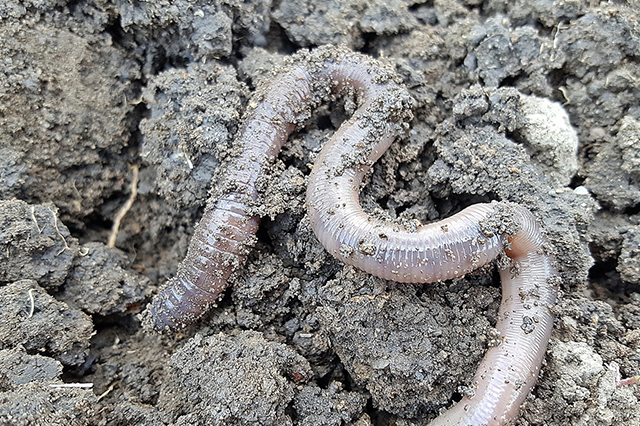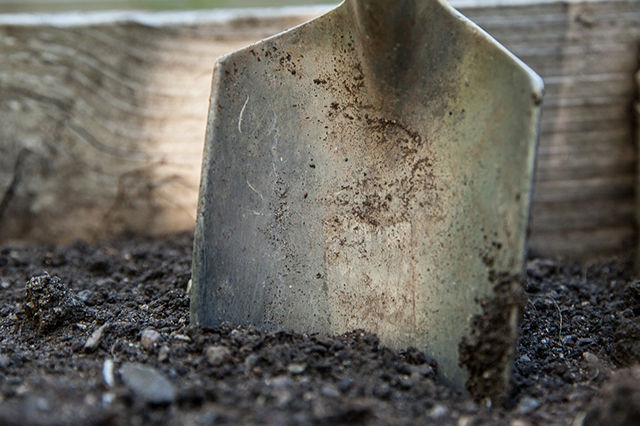Prevent your garden from declining or dying from poor soil structure and a lack of biodiversity. Knowing how garden worms are essential to your soil and garden livelihood will help you take better care of what is above ground and below it.

gardeninginfo-online.com gathered the following information on garden worm’s importance, selection, and care.
Good Garden Worms
No doubt about it, earthworms, nightcrawlers, and red wrigglers are the best garden worms. These soil specialists burrow their way through your garden’s soil, aerating it, fertilizing it, and increasing water penetration.
Earthworm information (Lumbricus terrestris) – Earthworm bodies are comprised of ringlike segments or annuli. These segments are covered in tiny bristles (setae) used to move and burrow. These worms typically dwell in rather shallow soil and moist leaf litter. Their bodies are characterized as being “a tube within a tube,” with an outer muscular body wall surrounding a digestive tract. As they burrow, they consume or process soil, extracting essential nutrients from decomposing organic matter like leaves and roots.
Earthworms are vital to soil health and to the plants growing in it because they transport nutrients and minerals from below to the surface through their waste deposits. A healthy earthworm will consume up to a third of its body weight in a day.
Nightcrawler information (Lumbricus terrestris) – Nightcrawlers are larger earthworms that burrow deeper into the soil. Nightcrawlers get their name from their nighttime feeding habits. As they burrow into the ground, they feed off of organic matter, like fallen, decaying leaves and dead grass, making them herbivores. At night, these worms will grab their food from the surface and burrow underground with it when feeding.
Note: Nightcrawlers are the most coveted worms for fishing.
Red Wriggler information (Eisenia fetida) – This is a species of earthworm adapted to decaying organic material. These worms are the most preferred type of worms for composting. Red wrigglers live two to five years, making them a prime selection when compared to other earthworm species.
Red worms, unlike nightcrawlers, are typically red. If these worms stretch their bodies, you can see the stripes on their skin that also make them known as tiger worms.
Where Do I Get Earthworms?
You can purchase earthworms from nurseries, garden supply stores, and bait shops. Consider the following when buying garden worms:
- Ask to see a handful of worms
- There should be worms of all sizes (they’re reproducing and growing)
- The worms should be moving around vigorously
- The soil should not stink from decomposing material
- You should not see any dead or white worms
Note: Once home, you can spread them around in your garden or compost pile without worrying. They will naturally know where to go and what to do.
Soil for Worms

There is some debate over which soil type is best for your garden and its worms. As for the worms, they require moisture to live since their bodies are 80% water, but since they also breathe through their skin, too much water can drown them. Your worms prefer well-drained loamy soil.
Soil and pH – As for your garden, most plant, fruit, and vegetable species will thrive in moist, well-drained loamy soil. The only potential challenge between your garden and its worms is to adjusting and maintaining a pH value between 6.0 and 7.0.
Worm Food – While your worms will get the vast majority of what they require from the soil, here are some items for them to feast on:
- Vegetable scraps
- Fruit and vegetable peelings
- Tea leaves or used bags
- Coffee grounds
- Vacuum cleaner dust
- Torn-up newspapers, egg cartons, or corrugated cardboard
- Crushed egg shells (helps control the pH balance)
Not Worm Food – When enriching your soil, the following items should be kept from entering your compost pile or your garden soil. They can alter the soil’s composition and pH to unhealthy or lethal conditions for your worms.
- Cat and dog feces
- Diseased or insect-infested plants and trimmings
- Lemon, lime, orange, or other citrus peels
- Onions and garlic
- Meat, fats, grease, or bones
- Butter, lard, stocks, etc.
- Plastics and plastic-coated paper
- Bread or yeast products
Tip: The only smell your garden soil or compost pile should have is a slightly sweet and pleasant earthiness that should only be noticeable when working in the garden or when the compost bin is open. Something is wrong if you notice a putrid or rotten smell or your worms attempting to crawl away from the garden or out of the bin.
Essential Worms for The Garden
In this article, you discovered essential information on the importance of worms, how to select healthy worms, and how to care for them.
Integrating healthy worms into your garden or compost pile will create better, more aerated, and nutrient-sustaining soil while increasing its biodiversity.
Ignoring the need for worms in your garden soil could leave it nutrient-poor, compacted, and incapable of sustaining any plant, fruit, or vegetable species.
Sources:
nrcs.usda.gov/sites/default/files/2022-10/Earthworms.pdf
epa.gov/recycle/composting-home
extension.unh.edu/blog/2020/12/should-i-put-earthworms-my-garden
kids.nationalgeographic.com/animals/invertebrates/facts/earthworm
The post Essential Garden Worms appeared first on http://gardeninginfo-online.com.
No comments:
Post a Comment